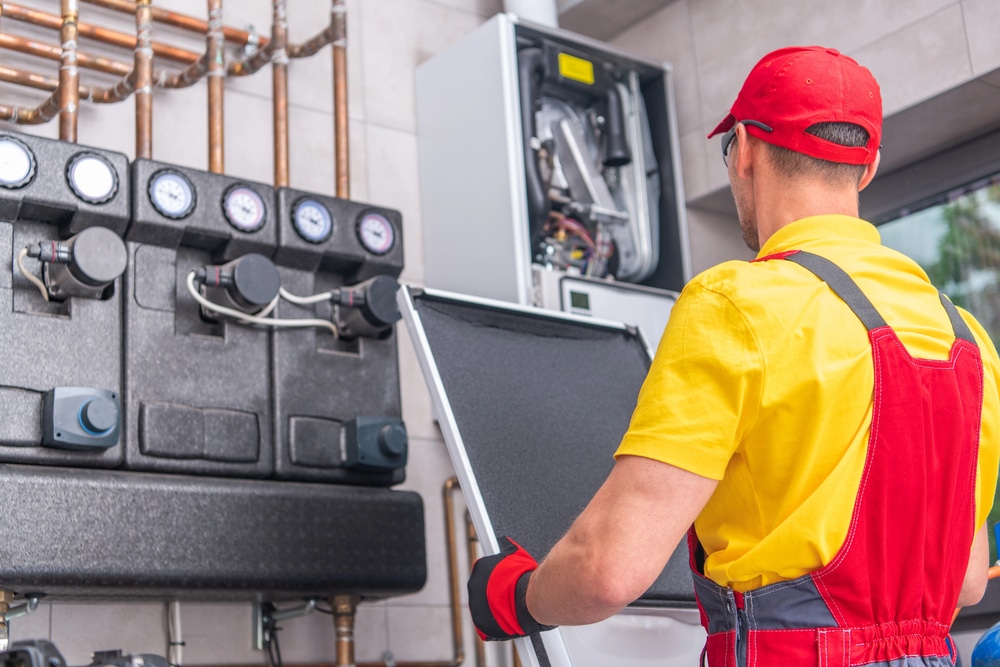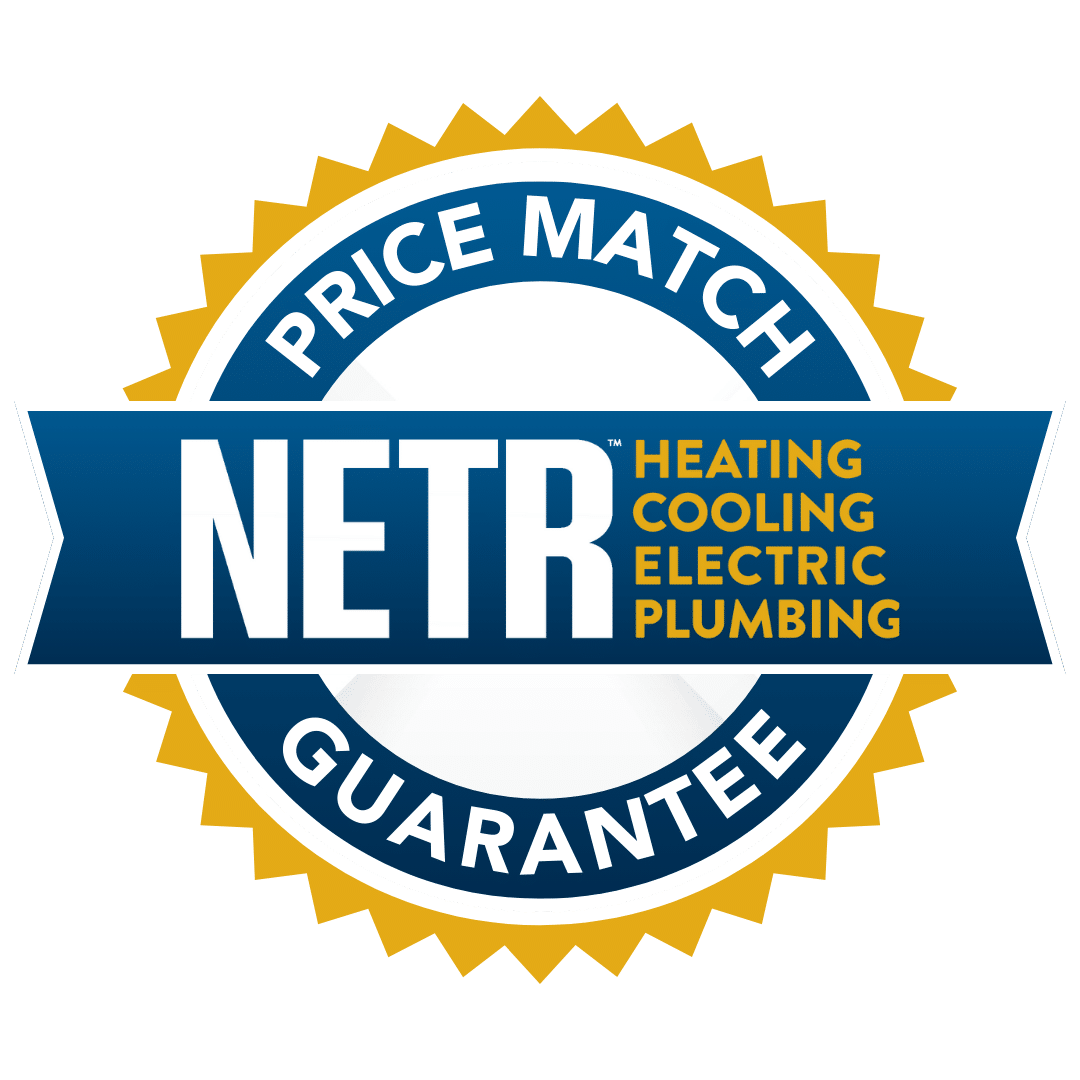Furnaces are one of the most common methods for heating homes in New England, especially during our harsh winters. Understanding how these systems work, the different types of furnaces available, and how to maintain them is key to keeping your space warm. Here’s what to know and how N.E.T.R., Inc. can help with all your furnace heating needs.

How Do Furnaces Work?
A furnace works by igniting fuel or using electricity to create heat. Then, this heat is used to warm up air inside the furnace, which is distributed through a network of ducts by a fan attached to a blower motor.
Your furnace is also connected to a thermostat that senses the temperature in your space and tells your unit to turn on and off as needed to maintain your preferred settings. All together, these components help keep your home or business warm, even in frigid winter weather.
Furnaces vs. Other Heating Methods
A furnace is just one way to heat your home and other methods can also help you stay warm and cozy when it’s cold out. Heat pumps are one of the most popular furnace alternatives, since they use minimal energy and can be used to create individual heating zones. These appliances work by collecting heat from outside and transferring it to your home through small copper tubes. They are quiet, energy-efficient, and highly effective at maintaining indoor comfort.
Other options include boilers, oil radiators, and portable space heaters. However, these may not be as safe or effective as furnaces or ductless mini-splits.
Read More
Central HVAC Vs. Ductless HVAC
Why Choose a Heat Pump vs. a Traditional Furnace (Podcast)
Types of Furnaces
There are several types of furnaces that can be installed in a home. Some of the most popular systems include:
Electric Furnaces
These furnaces use electricity to heat air that gets distributed through a series of ducts to each room in your home. They don’t require a fuel source or venting, but older models may be more costly to run due to inefficiency.
Read More
Electric Furnace Installation Pros and Cons
Troubleshooting Electric Furnace Problems
Gas and Propane Furnaces
Gas furnaces are also common throughout New England and tend to be popular due to their low cost compared to oil and electric. Gas systems require a gas line, while propane systems have a fuel tank located outside that typically gets filled annually. Both systems have the potential to produce dangerous carbon monoxide without adequate maintenance.
Read More
10 Myths About Gas Heating REVEALED!
Are You Safe with Natural Gas Central Heating?
The Top 9 Benefits of American Standard Gas Furnaces
How Much Does an American Standard Gas Furnace Cost in Boston, MA?
7 Most Common Gas Furnace Problems
How to Prepare Your Gas Furnace for Winter
High-Efficiency Furnaces
These furnaces are designed to maximize energy efficiency and can offer Annual Fuel Utilization Efficiency (AFUE) ratings of 90% or higher. This means more energy is converted into heat, which reduces waste and lowers utility bills.
Furnace Installation
For gas furnaces, these appliances must be connected to a gas line and have proper ventilation to air out harmful gases created by the combustion process. Both gas and electric furnaces can be installed in a basement, attic, utility closet, or somewhere else discreet and out of the way. If there are multiple options for placing your furnace, choose the area that gives you the most airflow and space for maintenance and repairs.
Read More
How to Choose the Right Furnace for Your Space
How to Prepare for Your Furnace Installation Service
Furnace Maintenance and Repair
Speaking of maintenance, adequate upkeep is essential for keeping your furnace running smoothly and preventing premature damage. Here are some tasks to make sure are getting done on a regular basis:
- Filter cleaning or replacement
- Annual professional inspections
- Cleaning and lubricating moving parts
- Calibrating the thermostat
- Checking for gas leaks
- Clean the condensate line (for high-efficiency furnaces)
- Clean and seal ductwork
Your furnace may need to be repaired if you notice critical issues like:
- Loud noises coming from your unit
- Strange or unpleasant odors
- Weak airflow from your vents
- Cold air coming from your vents instead of warm
- Water leaking around your furnace
Read More
9 Furnace Maintenance Tips to Get You Through The Winter
12 Most Common Reasons Your Furnace Isn’t Working (And How to Fix Them)
Help!: The Thermostat Is On, But the Heat Is Not Working
Should I Repair or Replace My Furnace?
Local Furnace Installations
At N.E.T.R., Inc., we’ve been installing furnaces in New England homes since 1989 and counting. See our local furnace installations here:
Furnace Replacement for Colonial Home in Methuen Increases Efficiency
Call N.E.T.R., Inc. for Furnace Service in Boston and Surrounding Areas
Your furnace is only as good as the maintenance it receives. At N.E.T.R., Inc., we offer everything you need to keep your equipment running at peak performance, so you’re always prepared for cold weather. Whether you need a new installation, emergency repairs, or routine maintenance, N.E.T.R., Inc. has you covered. Contact us at (781) 933-6387 to schedule your furnace service today.

